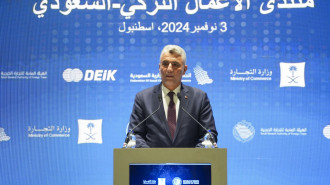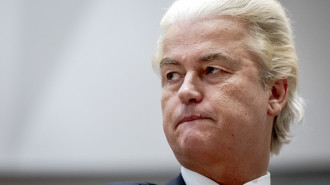Yemen's Houthi rebels weigh 'seriousness' of Sweden talks
Yemen's Houthi rebels will assess the "seriousness" of fragile UN-brokered talks with the rival government in Sweden on Friday, the head of the delegation said.
"We have no problem holding talks with the other side," Houthi spokesman Mohammed Abdelsalam said on Thursday, as the first day of the talks wound down.
"We will judge whether the Stockholm talks are serious or not tomorrow," Abdelsalam told the Arabic-language Al-Mayadeen television channel.
Talks between the Houthis, armed tribesmen from northern Yemen, and a pro-government military coalition led by Saudi Arabia opened on Thursday in Rimbo, Sweden, a rural area some 60 kilometres (37 miles) north of Stockholm.
They are expected to last a week, a UN official told reporters.
The meeting marks the first time warring Yemeni parties have officially met since 2016, when more than 100 days of negotiations in Kuwait yielded no breakthrough in the devastating conflict.
The UN special envoy for Yemen, Martin Griffiths, said he was cautiously optimistic the talks would help find common ground between the warring parties, particularly over the fate of rebel-held city of Hodeida.
The Red Sea city has been the target of a Saudi-led offensive to drive the Houthis out.
Hodeida is home to Yemen's most valuable port, the entry point of 90 percent of all food imports to a country at the brink of famine.
Members of the rebel and government delegations in Sweden however traded accusations of aggression, refusing to compromise on Hodeida.
The government is demanding the full withdrawal of the rebels from the city and port. The Houthis, however, have refused to evacuate Hodeida.
The United Nations now qualifies Yemen as home to the world's largest humanitarian crisis, with 14 million people at risk of famine and one child dying every 10 minutes of preventable causes.
'Not enough'
On Thursday, a World Food Programme official said boosting aid and even ending the devastating Yemen conflict would not be enough to end hunger in the impoverished country.
"Even if we have peace tomorrow, we hope of course that we will have peace tomorrow, then you will still need to work on a way to have that economy recover," Verhoosel told AFP.
"Humanitarian support is not enough. You need the humanitarian support but you also need to save the local economy."
Last month, Save the Children said an estimated 85,000 children under age 5 may have died of hunger and disease since the outbreak of Yemen's civil war in 2015.
The international organisation said the "conservative" estimate is based on average mortality rates for Severe Acute Malnutrition, which the UN says has afflicted more than 1.3 million children since a Saudi-led coalition went to war with Yemen's Houthi rebels in March 2015.
"For every child killed by bombs and bullets, dozens are starving to death and it's entirely preventable," adding that "children who die in this way suffer immensely,” Tamer Kirolos, Save the Children's Yemen director, said.
Three quarters of the population - now depend on humanitarian assistance to survive.
More than 10,000 people are said to have been killed since the Saudi-led pro-government coalition intervened in the conflict in early 2015, according to the World Health Organisation, although human rights groups are adamant that the actual toll is far higher.
Follow us on Twitter: @The_NewArab







 Follow the Middle East's top stories in English at The New Arab on Google News
Follow the Middle East's top stories in English at The New Arab on Google News


